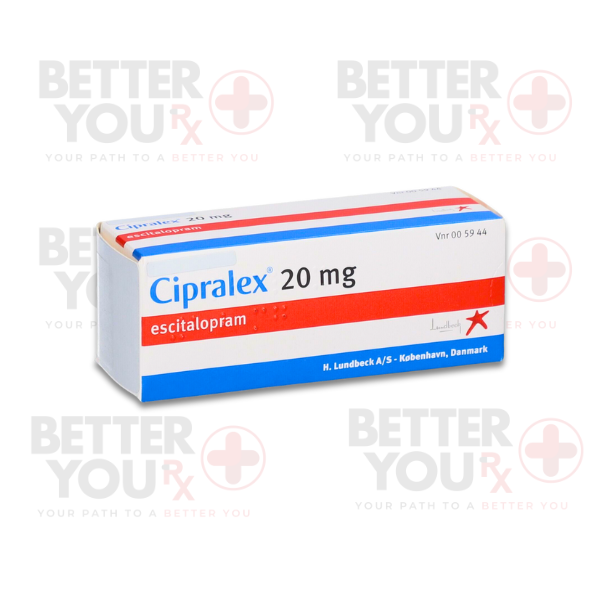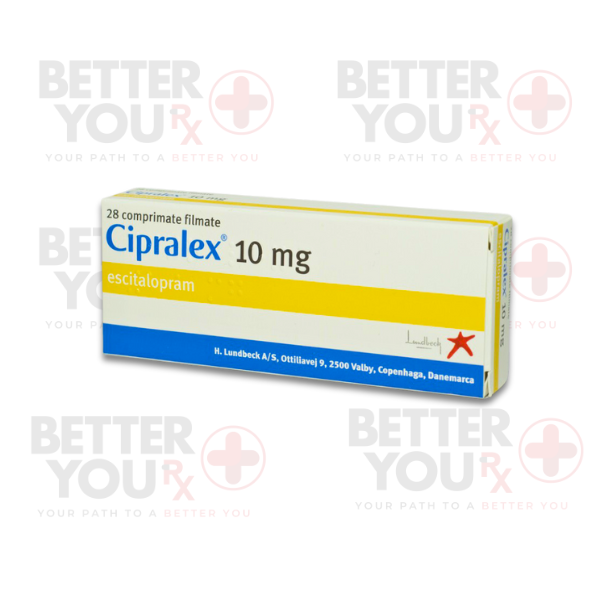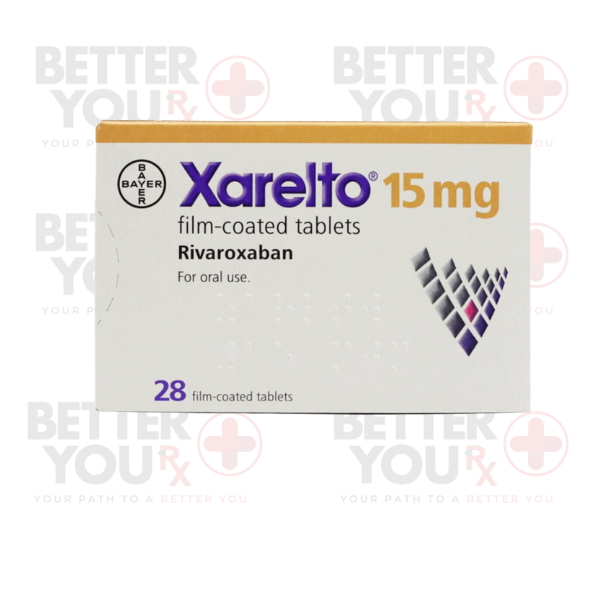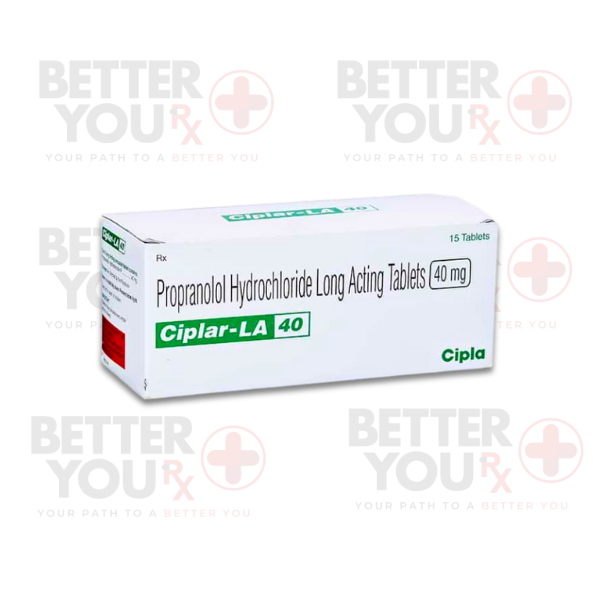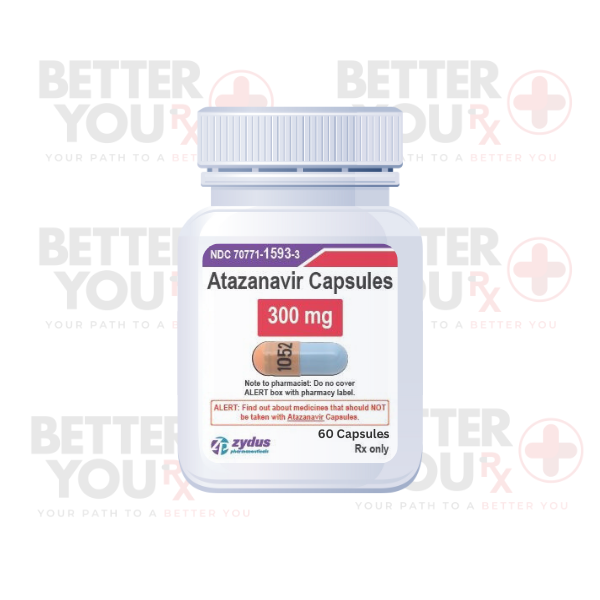| Usage |
Escitalopram is available in tablet and liquid form for oral consumption. Usually, it is ingested once a day, whether with or without food. To ensure consistency, it's advisable to take escitalopram at the same time each day, whether in the morning or evening. It's crucial to adhere to your prescription label instructions and seek clarification from your doctor or pharmacist if needed. Take escitalopram precisely as prescribed, avoiding both overuse and underuse. Your doctor might initiate your treatment with a low dose and adjust it after one week. The full therapeutic effect of escitalopram may take anywhere from 1 to 4 weeks or longer to become evident. Even if you start feeling better, it's essential to continue taking escitalopram as instructed. Discontinuing the medication without consulting your doctor may lead to withdrawal symptoms such as mood alterations, irritability, restlessness, dizziness, numbness or tingling in extremities, anxiety, confusion, headaches, fatigue, and sleep disturbances. If your doctor decides to discontinue the medication, they will likely do so gradually by reducing your dosage.
|
| Side Effects |
Escitalopram may elicit certain side effects. If you find any of these symptoms to be severe or persistent, it's important to inform your doctor:
• Nausea
• Diarrhea
• Constipation
• Alterations in sex drive or performance
• Drowsiness
• Increased sweating
• Dizziness
• Heartburn
• Stomach discomfort
• Excessive fatigue
• Dry mouth
• Heightened appetite
• Flu-like symptoms
• Runny nose
• Sneezing
Some side effects can be more serious. If you experience any of the following symptoms, or any others listed in the IMPORTANT WARNING or SPECIAL PRECAUTIONS sections, contact your doctor promptly:
• Unusual excitement
• Hallucinations (perceiving or hearing things that are not based in reality)
• Fever, profuse sweating, confusion, rapid or irregular heartbeat, and severe muscle stiffness
It's crucial to note that escitalopram might lead to other uncommon side effects as well. If you encounter any unusual issues while taking this medication, reach out to your doctor for guidance.
|
| Storage |
To ensure the safekeeping of this medication, follow these guidelines:
• Keep it in its original container, securely sealed, and away from children.
• Store it at room temperature, avoiding excessive heat and moisture (do not store it in the bathroom).
• Properly dispose of any unused medication to prevent access by pets, children, or others.
• Please refrain from disposing of this medication by flushing it down the toilet. Instead, utilize a medicine take-back program for safe disposal.
• You can inquire with your pharmacist or contact your local garbage/recycling department about available take-back programs in your area.
• Remember that many medication containers, including weekly pill organizers and those for eye drops, creams, patches, and inhalers, may not be child-resistant. Thus, always secure safety caps and store the medication in an inaccessible place, away from young children, to prevent accidental ingestion or poisoning.
|
| Special Precautions |
Prior to using escitalopram, it's important to consider the following precautions:
• Inform your doctor or pharmacist if you have any allergies to escitalopram, citalopram (Celexa), or other medications.
• If you are currently taking pimozide (Orap) or a monoamine oxidase (MAO) inhibitor like isocarboxazid (Marplan), phenelzine (Nardil), selegiline (Eldepryl, Emsam, Zelapar), or tranylcypromine (Parnate), or if you have discontinued an MAO inhibitor in the past 14 days, notify your doctor. They will likely advise against using escitalopram. After discontinuing escitalopram, wait at least 14 days before starting an MAO inhibitor.
• Avoid simultaneous use of escitalopram and another SSRI, citalopram (Celexa).
• Provide your doctor or pharmacist with a list of all prescription and over-the-counter medications, as well as vitamins you're currently taking or plan to take. Mention any of the following: anticoagulants (e.g., warfarin), antihistamines, aspirin, NSAIDs (e.g., ibuprofen, naproxen), carbamazepine (Tegretol), cimetidine (Tagamet), ketoconazole (Sporanox), lithium (Eskalith, Lithobid, Lithotabs), linezolid (Zyvox), medications for anxiety, mental health conditions, or seizures, migraine headache medications, metoprolol (Lopressor, Toprol XL), other antidepressants (e.g., desipramine), sedatives, sibutramine (Meridia), sleep aids, tramadol, methylene blue, and tranquilizers. Your doctor might have to modify your medication dosages or carefully supervise you for any potential side effects.
• Disclose your use of nutritional supplements and herbal products, especially those containing St. John's wort or tryptophan.
• Inform your doctor if you've had a recent heart attack or have a history of seizures, liver disease, kidney disease, thyroid disorders, or heart issues.
• If you are pregnant, particularly in the last trimester, or plan to become pregnant or breastfeed, notify your doctor. Escitalopram may pose risks to newborns if taken during the final months of pregnancy.
• If you are scheduled for surgery, including dental surgery, inform the healthcare provider or dentist that you are taking escitalopram.
• Be aware that escitalopram may cause drowsiness. Avoid driving or operating machinery until you are familiar with how this medication influences you.
• Remember that alcohol can intensify the drowsiness caused by escitalopram.
• Understand that escitalopram may potentially lead to angle-closure glaucoma, a condition characterized by a sudden blockage of eye fluid drainage, resulting in a rapid increase in eye pressure and possible vision loss. Discuss having an eye examination with your doctor before initiating this medication. If you experience symptoms such as nausea, eye pain, changes in vision, seeing colored rings around lights, and eye swelling or redness, contact your doctor or seek emergency medical attention immediately.
|
| Important Warning |
A small number of individuals, including children, teenagers, and young adults (up to 24 years of age), participating in clinical studies, experienced suicidal thoughts or behaviors (such as experiencing thoughts of self-harm or suicide, formulating plans, or attempting to do so) while using antidepressants, such as escitalopram. In cases where children, teenagers, and young adults use antidepressants to address depression or other mental health issues, they may have a higher risk of suicidal tendencies compared to those who do not use antidepressants for similar conditions. The extent of this risk and its consideration in the decision to prescribe antidepressants to a child or teenager remain uncertain.
Typically, children under 12 years of age should not be prescribed escitalopram. Nevertheless, in certain situations, a doctor may determine that escitalopram is the most appropriate medication for a child's condition. It's important to be aware that taking escitalopram or other antidepressants, even as an adult over 24 years of age, can lead to unexpected changes in mental health. Suicidal thoughts may emerge, particularly at the outset of treatment or when there are adjustments in dosage.
If you, your family, or your caregiver observe any of the following symptoms, promptly contact your doctor:
• The onset of new or worsening depression
• Contemplations of self-harm or suicide, or the formulation and attempted execution of such actions.
• Severe anxiety
• Agitation
• Panic attacks
• Sleep disruptions, like struggling to initiate or maintain sleep.
• Aggressive behavior
• Irritability
• Impulsive actions without consideration of consequences
• Profound restlessness
• Intense, frenzied excitement
It's essential that your family or caregiver is familiar with these potentially severe symptoms so they can reach out to the doctor if you are unable to seek help on your own. Throughout your escitalopram treatment, especially during the initial stages, your healthcare provider will want to schedule frequent office visits with you. Be sure to attend all appointments.
Regardless of your age, it's important to have a discussion with your doctor, parent, or caregiver about the benefits and risks associated with treating your condition using an antidepressant like escitalopram or alternative therapies. Additionally, the potential advantages and disadvantages of not treating your condition should be addressed. Keep in mind that having depression or another mental health disorder significantly heightens the risk of suicidal tendencies. This risk is even greater if you or any family member has experienced bipolar disorder (characterized by mood fluctuations between depression and excessive excitement), mania (a state of intense, frenzied elation), or has had thoughts of or made attempts at suicide. Openly converse with your doctor about your condition, symptoms, as well as your medical history, both personal and familial. Collaboratively, you and your doctor will determine the most suitable course of treatment for you.
|


